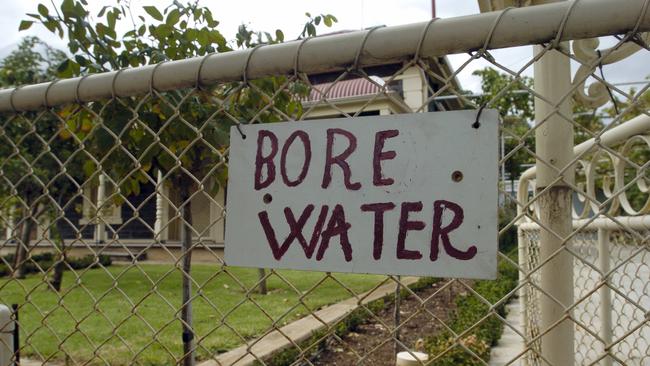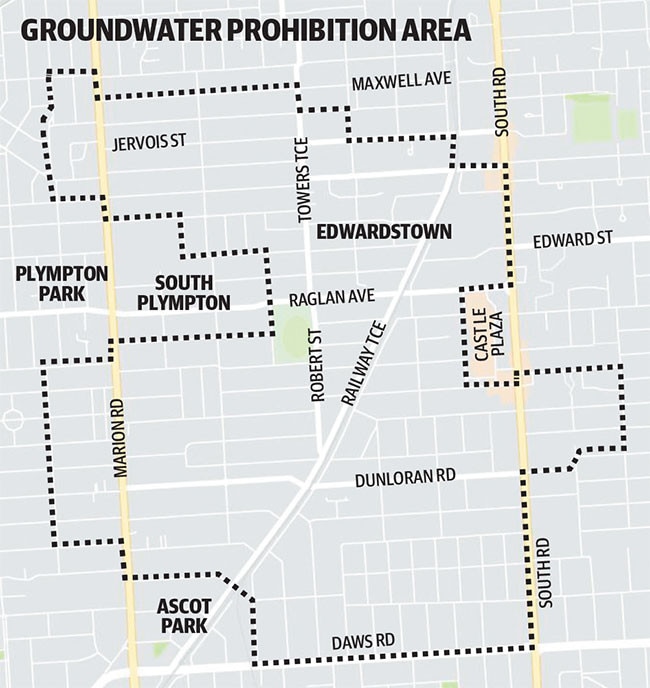Groundwater contamination in seven prompts EPA to consider banning extraction of bore water
HOMES in seven sites across Adelaide are being warned not to use groundwater because of toxic chemicals that can cause kidney and liver cancer — and bores could be banned.

SA News
Don't miss out on the headlines from SA News. Followed categories will be added to My News.
- EPA to test for dangerous chemicals in Thebarton
- New sites tested amid groundwater contamination fears
- Family returns home after EPA declares it contamination ‘safe-zone’
ABOUT 7000 residents have been notified of contaminated groundwater in seven sites across Adelaide — prompting community consultation to consider banning the use of bores.
The Environment Protection Authority has informed homeowners and landlords of water toxicity in Edwardstown, South Plympton, Plympton Park, Park Holme and Ascot Park, in the City of Marion, and Melrose Park.
The contamination dates back to 1997 and has come from industrial solvents that were used by companies who occupied the site prior to the 1980s. The most prevalent chemical substance is chloroethene, a colourless compound which can travel long distances in the groundwater and can also can become airborne.
EPA director of regulation Peter Dolan said the chemical was linked to “causing kidney and liver cancer” if exposed for a long period of time.

Mr Dolan said by prohibiting the use of groundwater it eliminated the pathway of human contact.
“The public has been pre-warned in most cases not to use the groundwater for any use,” he said.
“But what we’re looking to do now is we’re considering whether to ban the taking of groundwater in the area ... as a way of longer-term control.
“Our preferred approach is to consult with them and talk to them about options about how we can restrict the use and finally decide whether or not we are going to ban it.”
Fewer than 3 per cent of the properties in the area have registered bores, but Mr Dolan said there could be more.
“If groundwater or bore water is contaminated people might be exposed to that through drinking it or putting it in the swimming pool or watering plants,” Mr Dolan said.
Mains water and water from rainwater tanks are not affected by the contamination, while home-grown fruit and vegetables are also safe to consume provided they have not been watered using bore water.
The formal prohibition of groundwater extraction first occurred in 2013 for contaminated areas in Allenby Gardens and Flinders Park, and anyone caught using the water not only risked their health, but faced fines of $8000.
Mr Dolan said this contamination differed due to its multiple sources, however a ban on the extraction of bore water was because it was “essentially impossible” to remove it from the water.
A boundary has since been established around seven sites and up to five plumes.
“We’re considering a ban across a wide area bigger than the groundwater plumes (because) if you have a bore outside it and draw water you can actually draw the contamination towards you so we’ve set up what we call a buffer,” he said.
“The solvents involved take a very long time to break down in the environment so it might be decades to 100 years.” Four information sessions are scheduled, starting on September 5.



